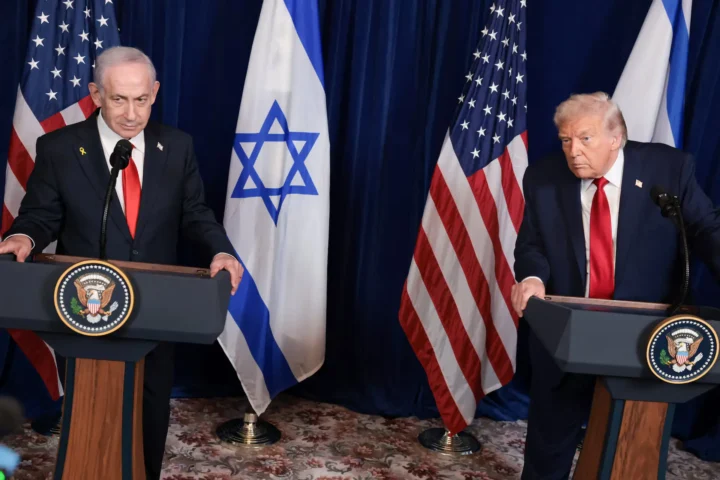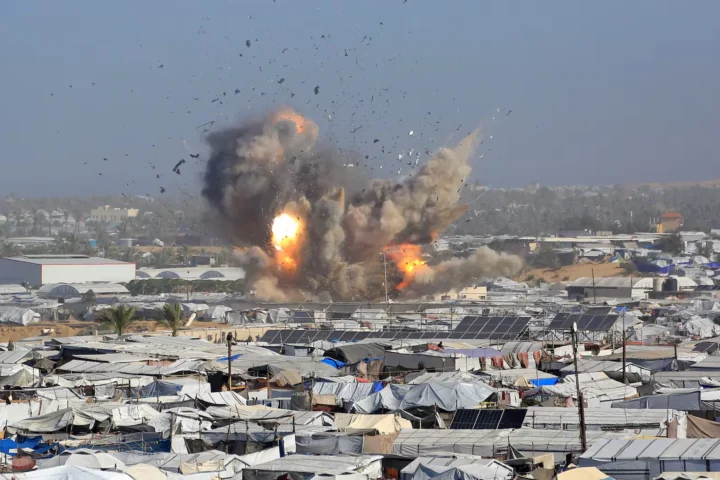In the opening pages of Ce que je cherche (What I Am Looking For), Jordan Bardella introduces himself as a political prodigy: a self-made man who rose from the impoverished banlieues of Paris to become the youngest-ever president of France’s far-right National Rally. His is a story tailor-made for political mythmaking—one of hardship, perseverance, and an unrelenting climb to power. At 29, Bardella stands as the heir apparent to Marine Le Pen, poised to take the reins of a party on the precipice of transformation. Yet, the timing of his memoir raises an intriguing question: is Bardella preparing for more than just the next chapter of his political career?
This book arrives at a critical juncture for the National Rally. Marine Le Pen, the party’s cornerstone and its face for over a decade, is entangled in a high-stakes trial. Prosecutors accuse her and 24 others of embezzling millions in EU funds. If convicted, Le Pen could face a five-year ban from public office, effectively ending her bid for the 2027 presidency. For a party that has built its brand on Le Pen’s charisma and leadership, this trial is a seismic event.
Amid this backdrop, Bardella’s book tour doubles as a campaign roadshow. His appearances draw crowds that blend literary enthusiasts with political supporters. The memoir provides a carefully curated glimpse into Bardella’s life: tales of growing up amid violence and poverty, of his mother’s sacrifices, and of his escape from the perils of his neighborhood. These anecdotes are intended to resonate with voters increasingly disillusioned by rising costs and stagnant wages. Yet, the narrative lacks substantive new ideas or revelations, instead reinforcing Bardella’s image as a devoted protégé of Le Pen.
Throughout the memoir, Bardella expresses unwavering admiration for his mentor, portraying her as a political “rock star.” He seems intent on quashing any speculation of a leadership challenge, emphasizing their symbiotic relationship. The party, he suggests, operates on an “American-style ticket,” with Le Pen as the presidential frontrunner and himself as a natural choice for prime minister.
However, the timing and tone of Bardella’s memoir suggest a more nuanced strategy. Le Pen’s legal troubles provide a window for Bardella to position himself as the party’s contingency plan—a leader ready to step in should her political future be derailed. His growing popularity, particularly among younger voters, has not gone unnoticed. Even Xavier Bertrand, a rival on the right, acknowledges Bardella’s potential as a credible alternative.
Still, a direct challenge to Le Pen’s leadership would be fraught with risk. Her influence within the party remains formidable, and attempts at far-right leadership coups in France have historically ended in failure. As political analyst Jean-Yves Camus notes, Bardella’s best move might be to bide his time. The current political landscape could naturally elevate him to leadership without the need for open confrontation.
For now, Bardella navigates a delicate balancing act. He publicly defends Le Pen, framing the trial as a politically motivated attack akin to those faced by Donald Trump in the U.S. “The prosecutors are not seeking justice but revenge,” Bardella asserts, aligning himself with the populist rhetoric that has become the party’s hallmark.
Internally, National Rally officials maintain that the Le Pen-Bardella partnership remains solid. Bardella’s rising star, they argue, only strengthens the party’s appeal. His memoir serves as a vehicle to broaden his base, introducing himself to new voters while reassuring the old guard of his loyalty.
The book, though unlikely to win literary accolades, achieves its primary goal: keeping Bardella at the center of France’s political discourse. It showcases a young leader adept at playing the long game, carefully cultivating an image of readiness and resolve.
With France’s National Assembly in a precarious state, early elections loom as a distinct possibility. The National Rally’s role as kingmaker could soon evolve into that of contender. In such a scenario, Bardella’s memoir may prove to be less about personal reflection and more about strategic positioning.
As the verdict in Le Pen’s trial approaches, the stakes for the National Rally—and for Bardella—could not be higher. Whether as Le Pen’s steadfast ally or her eventual successor, Bardella is clearly positioning himself for the moment when the spotlight fully shifts to him. For now, he remains in the wings, ready to step forward when the party—and perhaps the nation—calls.











